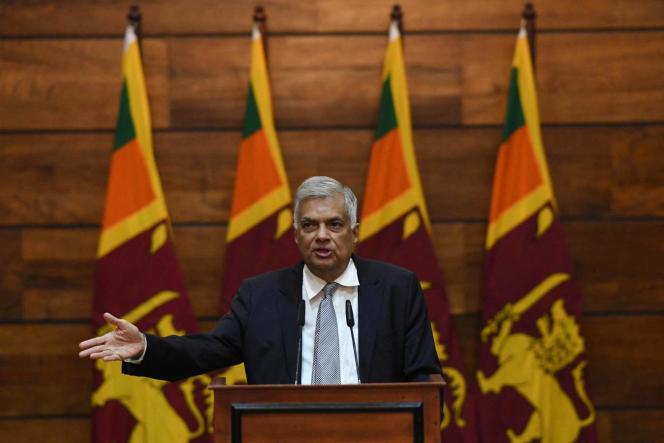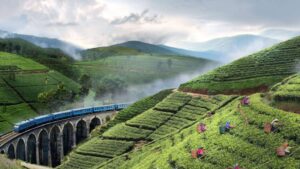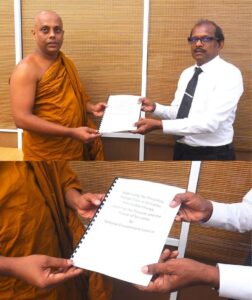UN Food Agency to Draft a Food Response Plan for Sri Lanka ahead of looming the food crisis
2 min read
(FILES) In this file photo taken on April 23, 2019, Sri Lanka's Prime Minister Ranil Wickremesinghe gestures as he answers questions during a press conference in Colombo. Wickremesinghe was sworn in as Sri Lanka's prime minister for the sixth time on May 12, 2022 though the veteran politician has never completed a full term in office. (Photo by Mohd RASFAN / AFP)
The UN food agency would be drafting a food crisis response plan for Sri Lanka amidst threats of a food shortage in the country due to its worst economic crisis.
The response of the Food and Agriculture Organisation (FAO) of the United Nations came after Prime Minister Ranil Wickremesinghe had warned of a food crisis in the island nation due to the ongoing economic crisis.
He had explained to both the FAO and the United Nations Development Programme (UNDP) the threat of a food shortage and a food security program which is being compiled by the local agriculture department officials.
This programme is due to be unveiled next month, with the UNDP expressing support for the initiative.
Wickremesinghe said that the biggest issue currently facing the agriculture sector is the fertiliser and fuel shortage.
The Prime Minister also elaborated on the urban agriculture initiative that he had established to try and overcome a potential food shortage.
The UNDP explained that they were compiling an innovative farming assistance programme which would help the farming community overcome the fertiliser shortage.
The FAO said that donors had stepped forward to assist the country in the urban agriculture programme, and was hopeful that successful implementation would see more financial support.
Wickremesinghe explained that within five to six months, the current agriculture shortages could be salvaged if swift action was taken to address the shortages faced by the farmers.
Sri Lanka faces the threat of crop losses of 50 per cent due to the erroneous policy decision taken by the government to deny the use of chemical fertiliser.
President Gotabaya Rajapaksa banned the importation of chemical fertiliser, pesticides and weedicides to introduce a green agriculture policy.
Sri Lanka is going through the worst economic crisis since its independence from Britain in 1945.
The economic crisis has prompted an acute shortage of essential items like food, medicine, cooking gas and other fuel, toilet paper and even matches, with Sri Lankans for months being forced to wait in lines lasting hours outside stores to buy fuel and cooking gas.
Protesters have occupied the entrance to President Gotabaya Rajapaksa’s office for nearly 50 days now, demanding his resignation.
The president’s brother and former prime minister Mahinda Rajapaksa resigned earlier this month following countrywide violence when his supporters attacked peaceful protesters.
The new prime minister, Wickremesinghe, has promised to propose constitutional changes to curtail presidential powers, strengthen Parliament and resolve Sri Lanka’s economic difficulties.




